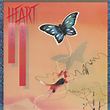 Photo by Fabrizio Verrecchia
Photo by Fabrizio Verrecchia
When I’m reading fiction, pacing is everything. It’s because I see literature as a dance. The author takes the lead. The reader follows. The sentences wind and, hopefully, the reader makes the pages turn.
Though reader and writer remain two separate entities, the connection that binds them is intimate—it flows out of the language. Yet there is a temporal component as well. Writing as an art form is overwhelmingly linear, perhaps more so than any other. Each piece of writing is read word by word, line by line, regardless of size or complexity. To achieve basic coherence, let alone literary quality, the sequence of letters, words, and clauses must be exact. The sentence is a finely tuned mechanism. String enough of them together into a story, and you have something much larger, grander.
Imagine a freight train, a machine of pure language barreling forward in time.
Pacing is crucial, because it’s the direct control of this constant linear progress by the author. It’s their foot on the pedal, directing the narrative’s speed.
In terms of a fast paced, engaging story, I can think of no better example from the last few years than Jeff Vandermeer’s Annihilation. There’s simply no better word to describe it than “gripping”. The story of a group of scientists on a research expedition to the quarantined sight of an undefined environmental or perhaps extraterrestrial event known as “Area X”, the novel is a masterpiece of speculative fiction. To say too much would ruin the novel for future readers, suffice it to say that from the opening lines the reader is submersed in tension and mystery. The prose ripples with an overwhelming sense of unease. Vandermeer’s achievement is in how expertly he doles out information to the reader while still progressing the action at a steady pace. This is a fast moving book. Yet on every question answered, three more arise, deepening the overall mystery that lies at the heart of the narrative. As the reader progresses things begin to take shape, the larger picture comes into focus, but never entirely. This balancing act between known and unknown is incredibly difficult to pull off, especially in a book as slim and fast-paced as Annihilation, but Vandermeer makes it look effortless, and entices the reader to keep turning the page.
On the other end of the spectrum, is a work like Ben Okri’s The Age of Magic, a book I found just as gripping as Annihilation, but far quieter and calmer in its presentation. Less a novel than an extended meditation, it tells the story of eight filmmakers traveling through the Alps while making a documentary. While Annihilation generates momentum through the interplay of plot and mystery, the spare, deeply deliberate language Okri employs speaks to something more introverted. It is unsurprising he has a background in poetry, considering his predisposition for strong imagery and thoughtfulness, tackling themes both spiritual and metaphysical from oblique, unexpected angles. The book is suffused with the timeless air of a dream. In fact the very first page of the novel shows an image of a luggage tag upon which is written the phrase: “Read slowly”, serving simultaneously as a gentle instruction to the reader as well an allusion to Lewis Carroll’s Alice books. Okri’s chapters are short, few go longer than a page. The “fragmented” nature of such a text invites quick reading, but by controlling the pace, Okri manages to make the reader take their time. They linger on the words, the phrases, the ideas.
I read Annihilation one afternoon in about three hours. I simply could not put it down. I had to know what was happening. The Age of Magic has a roughly similar word count, but took me over a week. There was just as much to “discover” in Okri’s book, it was simply that the territory it set out to explore was of a more intimate and contemplative nature, as such, his far more relaxed pacing facilitated this inward journey.
As with all elements of writing, there’s no one way to do it. No single pace will see you through every story you wish to tell. What matters is knowing both yourself and the narrative you’re trying to write, and settling on a tempo that allows that narrative to simply be what it needs to be. Unfolding in time to meet its true potential. Expressing itself in its finest form.
Prompt 1: A mother just returned home from the doctor’s, diagnosed with lung cancer. Compose a scene or short story exclusively through dialogue where she informs her family. Leave description behind and let the back and forth between the characters drive your prose.
Prompt 2: You find yourself wandering a series of dark hallways. You hear a distant, muffled sound. Feel a presence somewhere behind you. A door creaks. What do you see when you turn to look behind you? What happens after you break into a run?
***
 Bob Schofield is an American writer of British, Chinese, Pakistani, and Egyptian descent. He currently lives in the Netherlands. He is the author and illustrator of The Inevitable June, Man Bites Cloud, and Moon Facts. He likes what words and pictures do. He wants to be a ghostly presence in your life.
Bob Schofield is an American writer of British, Chinese, Pakistani, and Egyptian descent. He currently lives in the Netherlands. He is the author and illustrator of The Inevitable June, Man Bites Cloud, and Moon Facts. He likes what words and pictures do. He wants to be a ghostly presence in your life.





